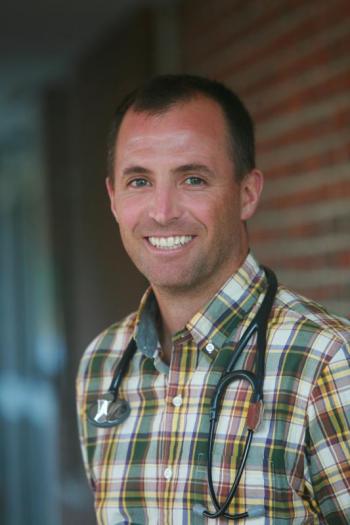Urgent Care Center less expensive and quicker but not appropriate for sickest patients
Most patients of the new Urgent Care Center on the St. Andrews campus of LincolnHealth are on their way home an hour after they arrive.
The new Urgent Care Center replaced the previous 24-hour Emergency Department. It is open from 8 a.m. to 8 p.m. every day and features the same highly qualified emergency physicians and nurses as well as a laboratory and diagnostic imaging services.
Two months after it opened, the Urgent Care Center is offering faster, less expensive care. Charges are about 30 percent less than the emergency department it replaced and those with the least complicated complaints can be out of the door in a half-hour.
That combination of quicker care that is also less expensive makes the new Urgent Care Center a good choice for many people, even if they have to drive from well outside the Boothbay peninsula, said Tim Fox, MD, Medical Director for the LincolnHealth Emergency Department.
“If they have a minor complaint and their primary care doctor is not available, this is a good option for them,” said Dr. Fox. “It is significantly cheaper and probably faster, even considering the potential driving time.”
But while the Urgent Care Center provides excellent care for more than 80 percent of the complaints previously treated at the St. Andrews Emergency Department, said Dr. Fox, it is also important that people understand how to use it.
The center is a good place to go for cuts, coughs, scrapes, headaches, simple fractures and other non life-threatening conditions, but people with more complicated conditions need treatment in facilities where they have access to a wide variety of specialists, such as surgeons, cardiologists and neurologists.
Since October, just over six percent of patients who arrived at the Urgent Care Center had to be transferred to nearby emergency departments.
The most common complaint that required transfer was for chest pain or a racing heart, but in general, Dr. Fox said anyone who feels as though they can no longer care for themselves at home and may need to be admitted to a hospital should call 911 or be driven to a nearby emergency department.
Symptoms such as shortness of breath, or chest pain, that could be associated with a heart attack, or symptoms such as loss of consciousness, sudden loss of vision, blurred vision or loss of ability to speak, which can be associated with a stroke, are signs a person should immediately call 911.


























